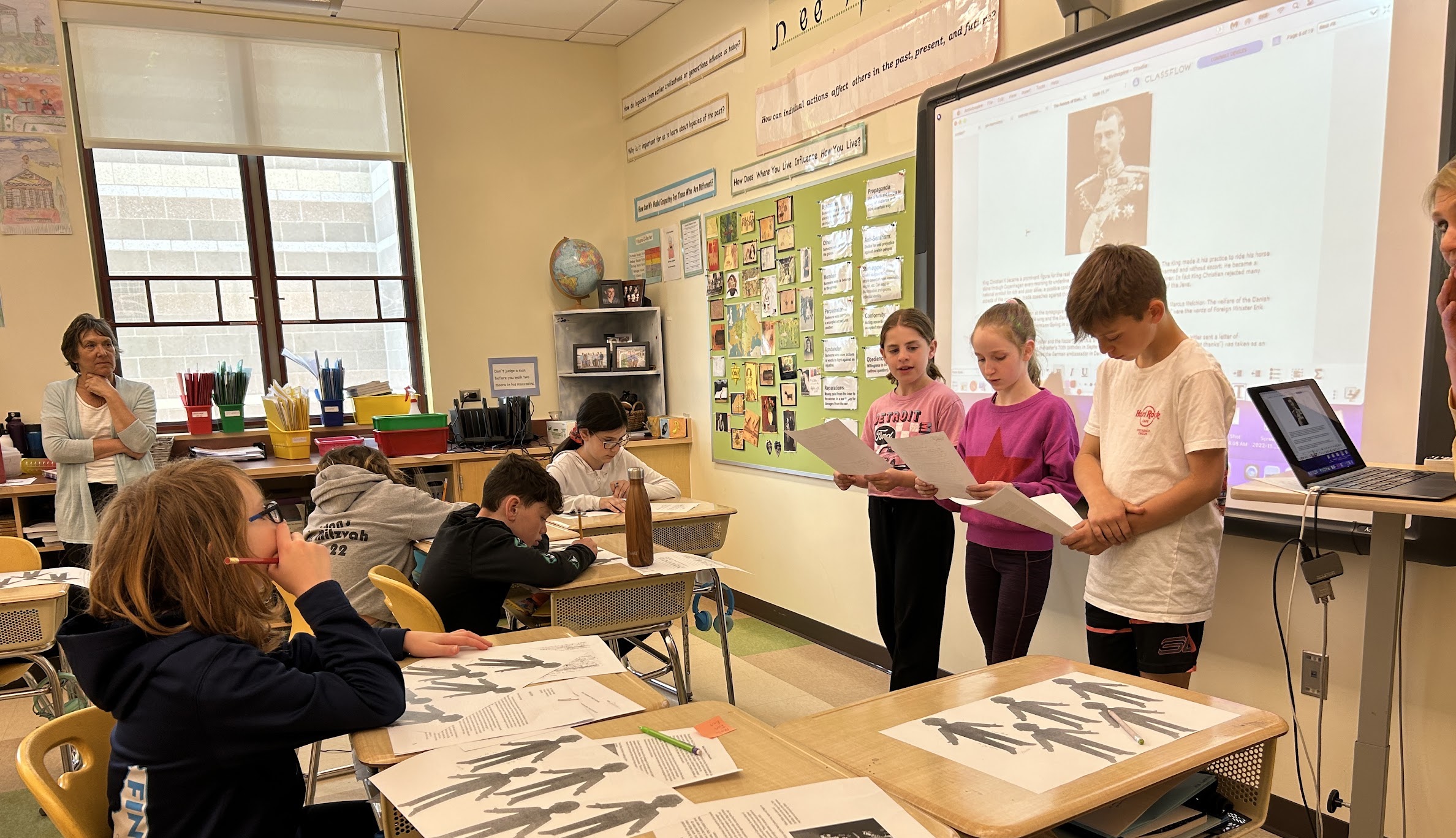While students observe holidays and memorials and hear stories from community members, formal Holocaust education begins at Rashi in Grade 5. “Our Holocaust unit is framed by the essential question: ‘How can individual actions affect others in the past, present, and future?’” explained Grade 5 lead teacher Anne Glanz. “We start by exploring the complexity of identity, our own and others, and the dangers of stereotyping and labeling.”
The class looked at the Holocaust through two lenses, the first being the experiences of elementary-aged children. One way they explored this was by reading Lois Lowry’s Number the Stars, a historical fiction book about two young girls, one Jewish and one not, in Nazi-occupied Denmark. This story led right into the unit’s second lens: upstander behavior. From the King, to government officials, to thousands of ordinary people, students learned how the Danes collectively stood up to the Nazis, effectively saving 99% of their Jewish population. Fifth graders assumed the identity of one Danish individual and shared that narrative with their classmates, illustrating what it means to be an upstander: someone who uses their words or actions to fight against an injustice.
Continuing their deep dive into upstanders during WWII, students branched out and looked at other figures across Europe. One such upstander was Nicholas Winton, a British stockbroker who saved 669 children in Czechoslovakia in an operation that later became known as the Kindertransport (children’s transport).
Another figure was Polish Catholic partisan Leopold Socha, a sewer worker. Noted in the memoir of Krystyna Chiger, Socha and his coworkers delivered food to Chiger’s family as they hid in the sewers of Lviv, Poland (now part of Ukraine) to escape the Nazis. As they read, students created timelines of the events during Chiger’s days in hiding. They noted what they believed to happen by luck, skill, or thanks to the actions of upstanders like Socha, resulting in the Chigers being one of only three Jewish families to survive in Lviv.
In their final projects, students were asked to define for themselves the essential characteristics of an upstander, and how this behavior continues to inspire others to rise against their own injustices. Learning about how seemingly ordinary people saved the lives and legacies of thousands during WWII ties directly into one of Rashi’s core values: Tzedek (justice). Through their Rashi education, children learn that they, too, can have an impact on the world by being upstanders, embracing tikkun olam (repairing the world), and caring for their community.



